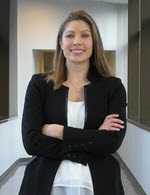ABOUT

Catherine Musselman, PhD
Professor and Director, Structural Biology and Biochemistry Program
Contact Catherine Musselman
The Structural Biology, Biochemistry, and Biophysics (SBBB) PhD Program is an interdepartmental graduate training program offered within the School of Medicine at the University of Colorado Anschutz in Aurora, Colorado. Student training places a major emphasis on research experiences, both in lab rotations and thesis projects, and includes a range of coursework in biochemistry, biophysics, drug design, pharmacology, and cellular, molecular, and structural biology.
The SBBB Program encourages students to engage in collaborative projects and provides shared mentoring that can include faculty from outside The Program. Such interactions are geared towards fostering interdisciplinary training.
Faculty research activities cover a range of structural and computational techniques including NMR Spectroscopy, X-Ray Crystallography, Cryo-EM, Mass Spectrometry and Proteomics, Biophysics, and Peptide/Protein Chemistry that are focused on a diversity
of biological targets such as signaling molecules, transmembrane proteins, RNA, genome bioinformatics, lipids, and oligosaccharides.

Program Handbook
Learn more about program resources and requirements in the SBBB Handbook 2024
Goals of the Program
The goals of the Structural Biology and Biochemistry Program are to:
- Foster scientific excellence and innovation in the field of biomolecular structure and function.
- Develop and advance expertise and technology to support cutting-edge research in biomedical sciences
- Provide training and career development for outstanding scientists
- Identify and characterize molecular targets and develop innovative therapeutics and diagnostic tools
- Exploit discoveries and intellectual properties through strategic partnerships with the industry.
Learning Outcomes
The PhD program in Structural Biology and Biochemistry trains graduate students to become proficient and successful investigators who are able to:
- Demonstrate a basic knowledge of central concepts in the biomedical sciences.
- Understand the current concepts in structural biology and biochemistry.
- Read and critically evaluate the scientific literature.
- Formulate hypotheses based on current concepts in the field and design, conduct, and interpret their own research projects.
- Present research results in peer-reviewed publications and in a dissertation.
- Communicate research results effectively through oral presentations at scientific seminars, conferences, and other venues.
- Write a competitive application for research funding.
- Develop ancillary skills, where necessary, to obtain positions outside of scientific research.
With this knowledge, they will understand molecular structures and mechanisms. Training is provided in the following exciting areas:
- Biomolecular Interactions.
- Protein and RNA structure, function, and dynamics.
- Computational studies of structure and function relationships of biomolecules.
- Structure-based design of new molecules important in biology, biochemistry, and pharmacology.
- Proteomics and metabolics.
The courses and research emphasize both breadth and flexibility while encouraging interdisciplinary training. Students may choose research projects from a variety of laboratories at the University of Colorado and the National Jewish Medical and Research Center. Training will result in a PhD degree awarded by the Program in Structural Biology and Biochemistry. The program in Molecular Biology also offers a PhD degree with specialization in Structural Biology and Biochemistry. Visit the Molecular Biology website for more information.
Student Support
Students accepted in the PhD program are provided full tuition, health and dental insurance, and a stipend of $43,000 per year for living expenses. Continued support is contingent upon satisfactory academic and research performance by the student. When a student enters a thesis lab, the thesis mentor assumes complete responsibility for the student’s stipend, benefits, tuition, fees, and associated research costs.
Curriculum
Lab Rotations | Students complete a minimum of two and a maximum of three research rotations in the laboratories of program faculty during the first 12 months of the program. The rotations provide the student a broad experimental experience and help the student to select a laboratory in which to pursue thesis research.
Candidacy for PhD | After successful completion of the Preliminary Exam (typically taken in June of the first year), students elect a thesis mentor and generate a thesis proposal which is presented and defended as part of the Comprehensive Exam. This exam is administered and student progress is monitored by a five-member thesis committee. The thesis work is expected to be completed, written up, and defended within five years after the Preliminary Exam.
Courses | First year coursework required of all graduate students in any of the Basic Science graduate programs consists of the 5-part Biomedical Sciences Core Course, 3 Research Rotations, Seminars and Ethics in Research.
Electives | A variety of elective courses are available dealing with subspecialties of biological research as well as with biomolecular structure, techniques in structural elucidation, pharmacology, molecular and cellular biology, and chemistry.
Specific to the Structural Biology Program, STUDENTS MUST TAKE 5 credits of the following Structure Courses: STBB 7608, 7609 7631, 7632, or 7633 during their first and/or second year.